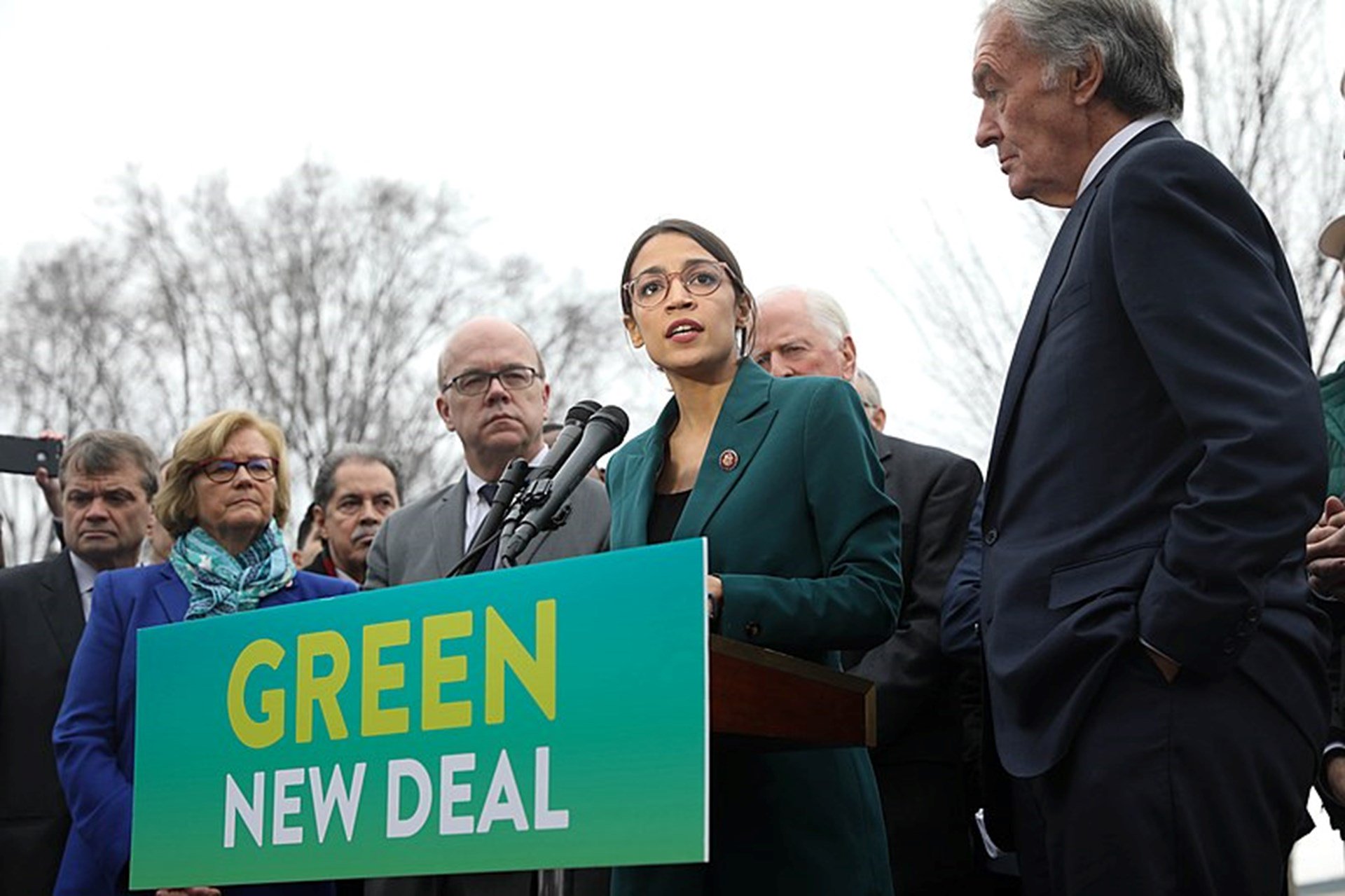It seems U.S. senators will get to vote on an ambitious manifesto to get the U.S. to “net-zero” in greenhouse gas emissions by 2030 and to use that mobilization to drive good jobs and quality health care for all.
Sen. Mitch McConnell, the majority leader, has called for a vote to force what he thinks will be an awkward choice for many senators.
Newly elected Rep. Alexandria Ocasio-Cortez has galvanized the political debate with a proposed Green New Deal that would rely primarily on government financing to pay for the required investments in climate-friendly agriculture, transportation, buildings, manufacturing and, of course, energy.
In the latest Returns on Investment podcast, roundtable regulars Brian Walsh and Imogen Rose-Smith tried to force ImpactAlpha’s David Bank into his own awkward choice: private capital or government funding?
“It’s true that Alexandria Ocasio-Cortez has gone to the mat, and more power to her, that the public can pay for these things,” Bank says in the podcast. “But that undersells that there is going to be massive private investment as well.”
The kinds of financing mechanisms in the Green New Deal proposal – to mobilize capital, apportion risks, protect stakeholders and ensure accountability – have been built by elements of the impact investing industry in recent decades, he said.
Rose-Smith agreed, “We don’t need to wait for Washington. You are starting to see private sector investing, including impact investing, coming into those growing opportunities.”
The legislation’s emphasis on public accountability is key. Ocasio-Cortez has helped change the dynamic from “This is socialism,” to “Sharing the wealth is vital part of a successful, sustainable capitalist economy,” Rose-Smith said. “That will be a huge game-changer.”












